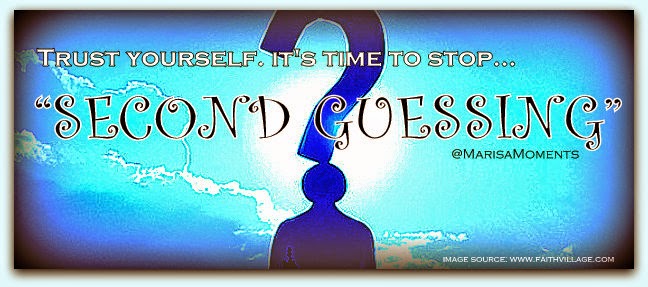We automatically second guess ourselves when other people disagree

We Automatically Second-Guess Ourselves When Other People Disagree

We all have experienced moments when we question ourselves after someone disagrees with our opinions or decisions. It seems that the mere act of disagreement triggers self-doubt and makes us second-guess our own beliefs. This phenomenon is not uncommon and can be explained through psychological and social theories.
This article explores the reasons behind our tendency to automatically second-guess ourselves when faced with disagreement and how it impacts our thoughts and behaviors. Drawing insights from a research paper published in the Journal of Personality and Social Psychology, we delve into the various factors that contribute to this behavior.
The Nature of Disagreement
Disagreements are an inherent part of human interaction and often arise from differences in perspectives, values, or experiences. While healthy disagreement can promote critical thinking and growth, it also challenges our sense of certainty. Our brains are wired to seek acceptance and belonging, and disagreement threatens that fundamental need.
When someone disagrees with us, it triggers cognitive dissonance, a state of mental discomfort caused by holding contradictory beliefs. This discomfort motivates us to resolve the inconsistency by reevaluating our thoughts, actions, or beliefs. Our natural response, then, is to second-guess ourselves in an attempt to reduce the discomfort and align with others’ viewpoints.
The Power of Social Validation

One of the key reasons why we automatically second-guess ourselves is the desire for social validation. Humans are social creatures, and evolutionary instincts drive us to seek acceptance and approval from the communities we belong to. Disagreement can evoke feelings of social rejection and isolation, triggering self-doubt and prompting us to reassess our position.
Moreover, shared opinions and beliefs serve as a social glue that binds individuals within a group. Second-guessing ourselves is a way of avoiding social conflict and maintaining harmonious relationships. We fear that disagreement might lead to social exclusion or damage our reputation, which further motivates us to question our initial stance.
The Influence of Authority and Expertise
The power dynamics involved in disagreements can significantly impact our tendency to second-guess ourselves. When someone in a position of authority or someone we perceive as an expert disagrees with us, we are more likely to doubt our own perspectives. This can be attributed to the psychological phenomenon known as the “halo effect,” in which we attribute more credibility and expertise to those we consider reputable.
Additionally, when faced with disagreement from authority figures or experts, we might feel less qualified or knowledgeable in comparison. This perceived competence gap makes us more susceptible to self-doubt and increases the likelihood of second-guessing ourselves, seeking validation from those we perceive as more knowledgeable.
Overcoming the Reflex to Second-Guess
Understanding why we tend to automatically second-guess ourselves when faced with disagreement is important for personal growth and decision-making. By recognizing these underlying factors, we can actively work towards self-awareness and develop healthier ways of dealing with differing opinions.
Critical thinking and open-mindedness are essential in evaluating different viewpoints without automatically assuming our own is incorrect. Seeking validation from within and building self-confidence can help create a strong foundation for navigating disagreements. Moreover, maintaining respectful and constructive conversations can encourage a healthy exchange of ideas, fostering personal growth and empathy.
In conclusion, our inclination to second-guess ourselves when other people disagree is a complex interplay of psychological and social factors. Disagreement challenges our sense of certainty and belonging, triggering cognitive dissonance and the need for social validation. Recognizing and understanding this reflex can empower us to embrace differing opinions and engage in meaningful conversations that promote personal growth and understanding.
Source: Journal of Personality and Social Psychology
Share
Related Posts
Quick Links
Legal Stuff

